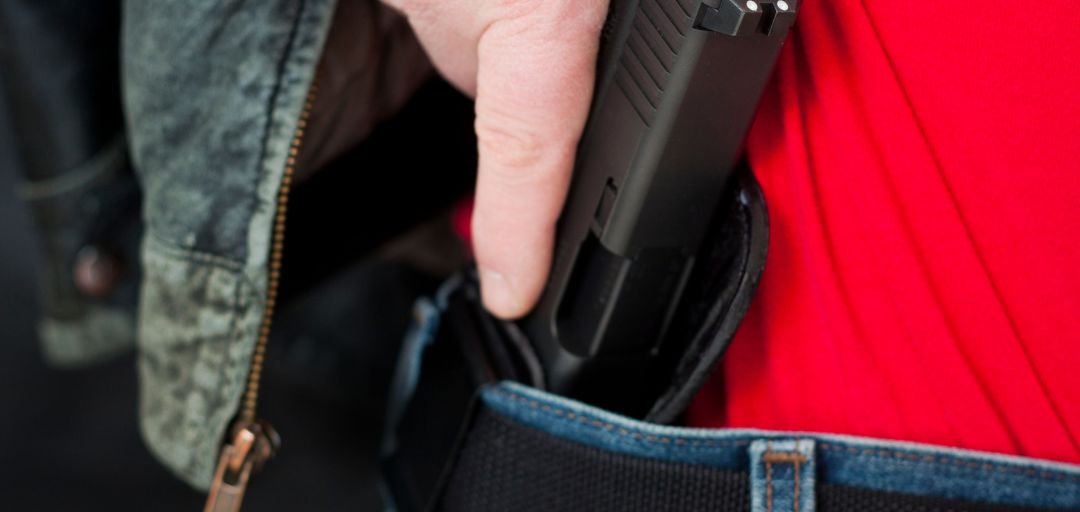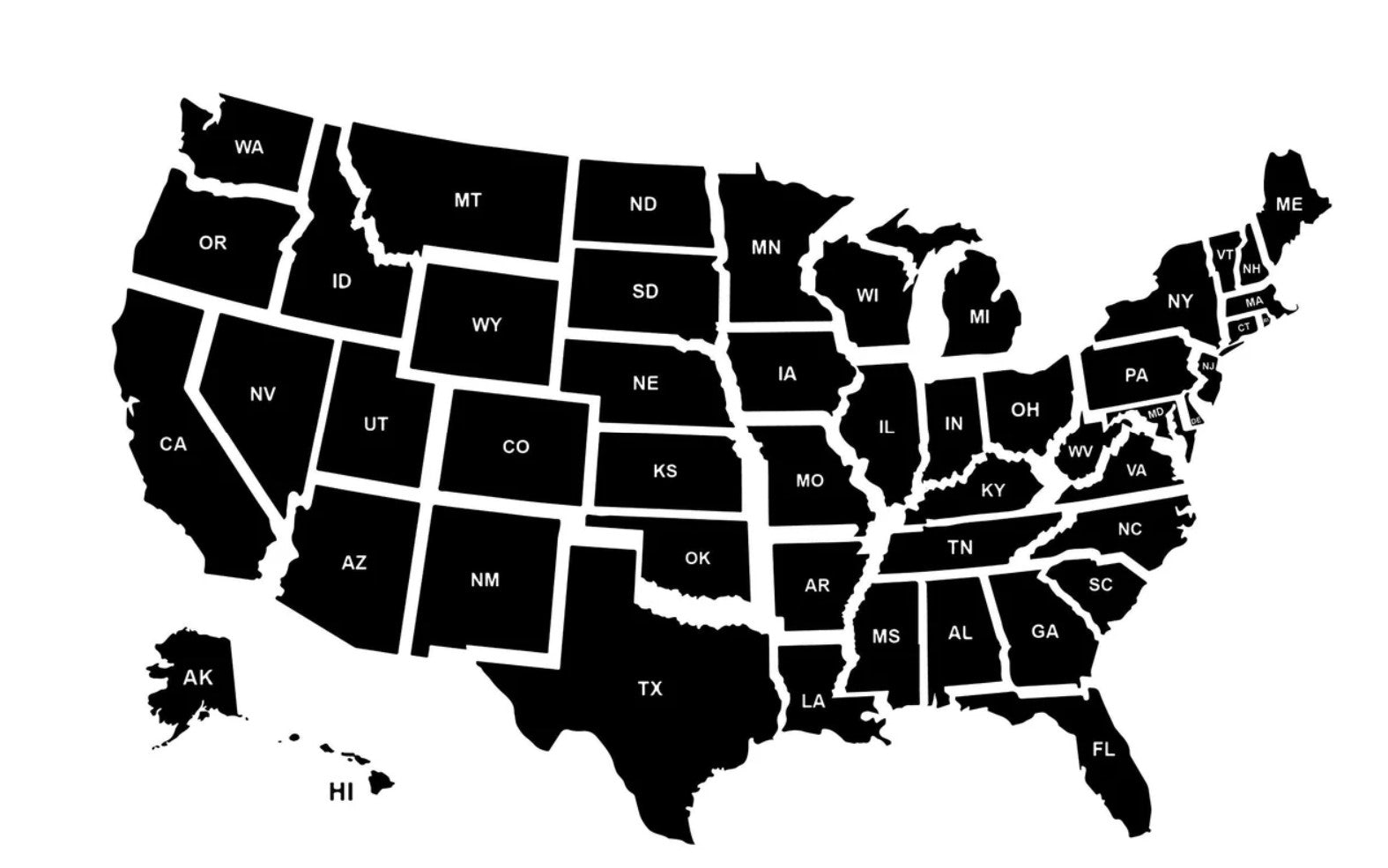The term "concealed carry" has become a common phrase in discussions about personal safety, the Second Amendment, and individual rights. But what does concealed carry actually mean, and what responsibilities come with it? Whether you’re new to firearms or looking to better understand your rights, this blog post provides an in-depth look at concealed carry, its legal implications, and how to ensure you’re a responsible carrier. Our goal is to answer your questions and guide you in making informed decisions regarding concealed carry.
What is Concealed Carry?
Concealed carry refers to the practice of carrying a firearm in a concealed manner, typically on your person or in close proximity, such as in a bag or vehicle, so it is not visible to others. Unlike open carry, where a firearm is visibly carried, concealed carry means that the weapon remains hidden from public view.
The primary purpose of concealed carry is personal protection—having the means to defend yourself and others if a situation becomes life-threatening. However, with the right to concealed carry comes the responsibility of proper training, legal awareness, and respect for those around you.
Legal Requirements for Concealed Carry
Concealed carry laws vary significantly depending on where you live, and it’s important to understand your state’s specific regulations. Generally, there are three main types of state laws that govern concealed carry:
-
"Shall-Issue" States: In these states, anyone who meets the basic requirements, such as completing a background check and a firearm training course, must be issued a concealed carry permit. Examples include states like Florida and Texas. For more information on Florida concealed carry requirements, visit: https://www.fdacs.gov/Consumer-Resources/Concealed-Weapon-License
-
"May-Issue" States: These states have more restrictive permit requirements. Even if you meet the basic qualifications, the issuing authority has the discretion to approve or deny your application, often requiring you to demonstrate a "good cause" for needing a concealed carry permit. States like California and New York fall under this category. You can read more about New York concealed carry laws here: https://licensing.nypdonline.org/new-app-instruction/
-
"Constitutional Carry" or "Permitless Carry" States: In some states, no permit is required for a lawful gun owner to carry a concealed firearm. These states allow citizens to carry without undergoing the permit application process, provided they meet all other legal requirements for firearm ownership. Examples include Arizona and Vermont. More details can be found here: https://www.azdps.gov/services/public/cwp
The Importance of Concealed Carry Training
Experience is one of the key factors that makes concealed carry effective for personal defense. Carrying a firearm without adequate training poses a serious risk to you and those around you. A comprehensive concealed carry training course will cover:
- Firearm Safety: Proper handling, loading, unloading, and storing of your firearm are crucial to preventing accidents.
- Marksmanship: Training in techniques such as aiming, trigger control, stance, and grip to ensure accuracy in a high-pressure situation.
- Legal Requirements: Understanding when the use of force is justified and the legalities surrounding self-defense.
- Real-Life Scenarios: Practicing self-defense scenarios where split-second decisions are necessary helps ensure you respond appropriately when faced with a threat.
It is also critical to continue practicing and updating your training. Our anatomical shooting targets (https://gogunzee.com/products/anatomical-shooting-targets) are designed for use in range practice, helping to simulate real-life situations and enhance your accuracy and preparedness.
Benefits of Concealed Carry
The most obvious benefit of concealed carry is enhanced personal protection. But there are other significant advantages that come from being a responsible concealed carrier:
-
Personal Safety and Defense: Concealed carry allows you to be ready to protect yourself and others when faced with a dangerous situation. Although most people who carry a firearm will never have to use it, the knowledge that you have a means of defense can provide peace of mind.
-
Crime Deterrence: Concealed carry can also deter crime. When potential criminals know that people in a community may be carrying concealed firearms, they are less likely to commit violent acts. This deterrent effect can help create safer communities overall.
-
Confidence and Empowerment: Carrying a firearm responsibly can give you a greater sense of empowerment, particularly for individuals who may feel vulnerable. However, this confidence should always be coupled with responsibility, training, and awareness.
Responsibilities of Concealed Carry
Carrying a concealed firearm carries great responsibility, and it’s critical to understand the role of a responsible gun owner. Below are some of the main responsibilities:
-
Understanding the Law: Concealed carry laws can vary between states and even local jurisdictions. It’s crucial to be familiar with the laws where you live, as well as in any areas you plan to visit. For more information, sites like https://www.usacarry.com provide state-by-state guides to gun laws and concealed carry requirements.
-
Avoiding Conflict: A key part of responsible concealed carry is knowing how to avoid potentially dangerous situations whenever possible. A firearm is only to be used in self-defense when there is no other option. Avoiding conflict and de-escalating situations should always be your first priority.
-
Regular Training and Practice: Your training doesn’t stop once you’ve obtained a concealed carry permit. Staying prepared means practicing regularly. This can include visiting shooting ranges and taking part in refresher courses. You can find our firearm cleaning kits (https://gogunzee.com/collections/gun-cleaning-kits) to ensure your firearm remains in good working condition, as maintenance is a key part of being a responsible carrier.
Experience, Expertise, Authority, and Trustworthiness (E-E-A-T) in Concealed Carry
Concealed carry is more than a personal decision—it is a responsibility that requires a high level of experience, expertise, authority, and trustworthiness (E-E-A-T):
-
Experience: Carrying a firearm demands experience in safe handling, understanding when it is appropriate to use it, and being prepared for the consequences. Experience also involves ongoing training and real-life practice scenarios that simulate high-stress situations.
-
Expertise: Expertise comes from education and continuous learning. This includes taking certified training courses, understanding your rights and responsibilities, and staying informed about current laws and best practices in concealed carry.
-
Authority: As a concealed carry permit holder, it’s vital to set a positive example. Follow all laws, demonstrate safe and responsible handling of your firearm, and maintain a standard of conduct that reflects your authority on the subject.
-
Trustworthiness: Building trust is essential when you carry a concealed firearm. Keep your firearm hidden, act responsibly, and always prioritize the safety of yourself and others. Trust is earned through demonstrating respect for the law and handling your firearm ethically.
Conclusion
Concealed carry is a personal choice, but one that comes with significant responsibilities. Understanding what it means to carry a concealed firearm goes beyond having the right equipment—it involves comprehensive training, legal awareness, and a commitment to being a responsible member of society. With experience, expertise, authority, and trustworthiness, concealed carry can be a valuable tool for self-defense.
For more information on how to carry comfortably and confidently, explore our holster pads (https://gogunzee.com/collections/iwb-holster-pads-classic-series), which are designed to improve comfort and security while carrying. Additionally, for a deeper understanding of concealed carry laws and best practices, visit trusted resources like https://www.usacarry.com.
By approaching concealed carry with care, knowledge, and responsibility, you can make informed decisions that prioritize your safety, the safety of those around you, and uphold the principles of responsible gun ownership.



